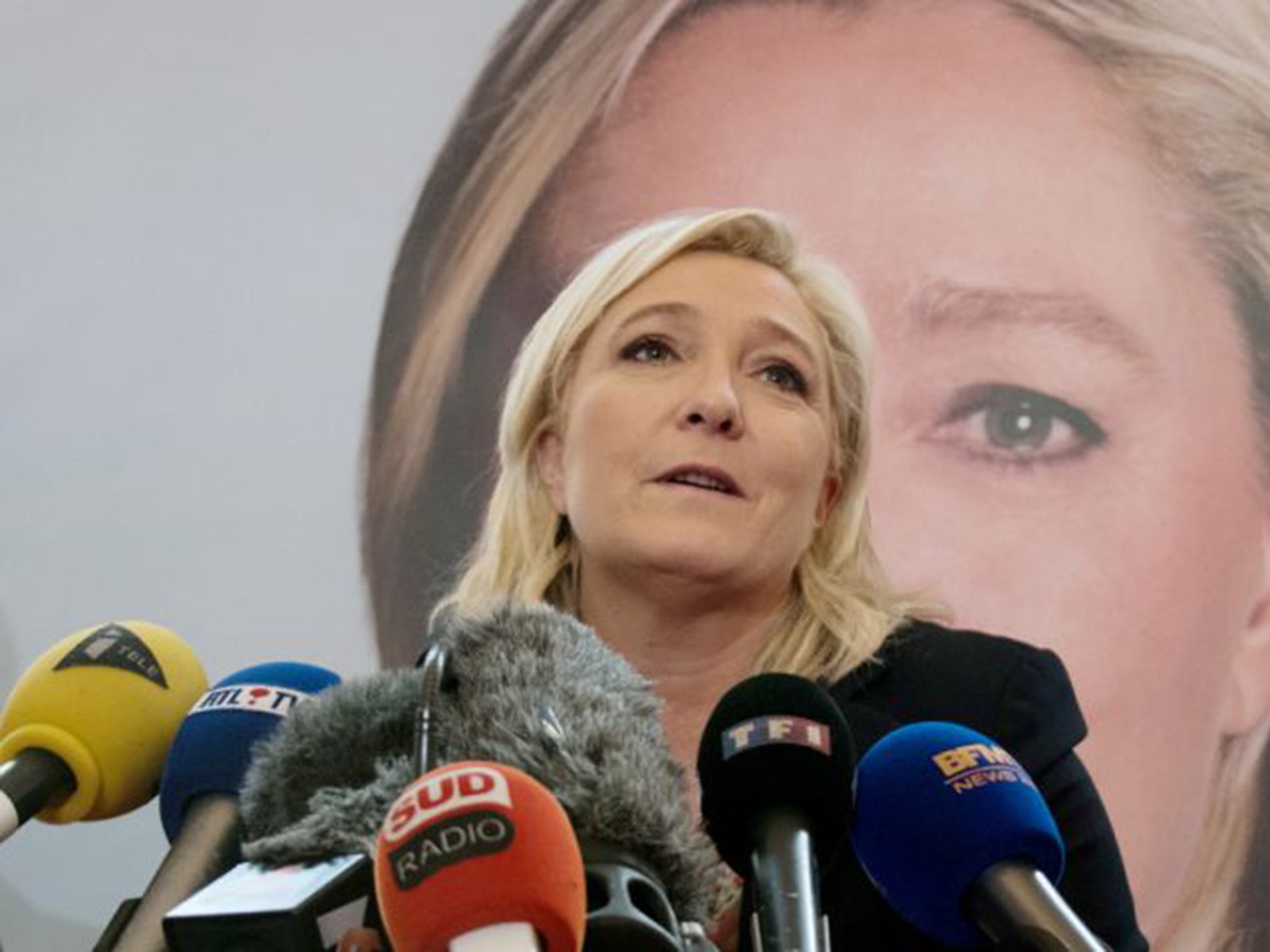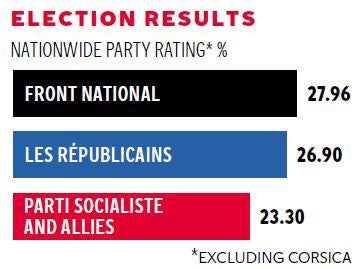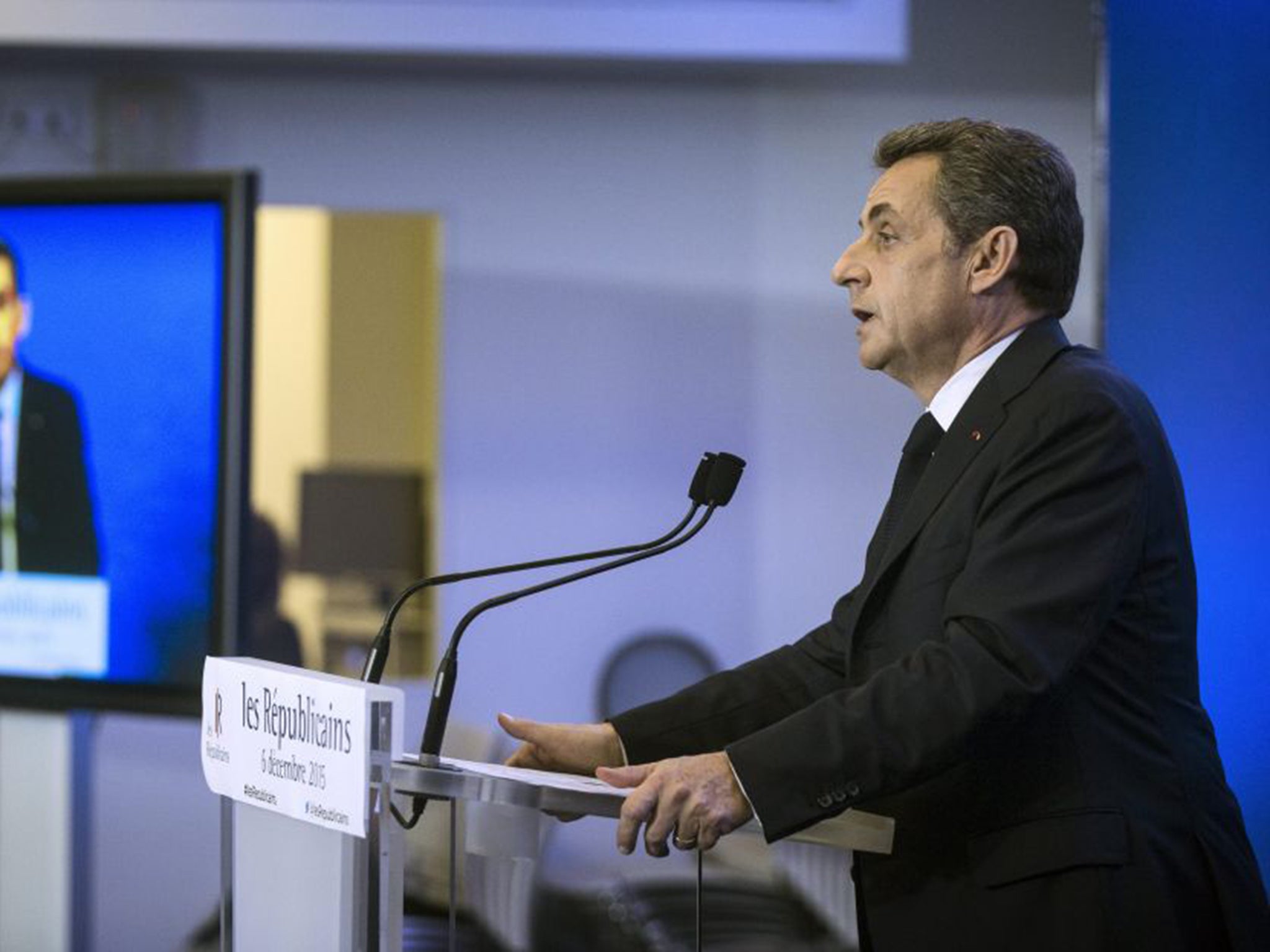France's far-right Front National wins one in three votes in regional elections following Paris attacks
Up to three French regions could fall under the flag of the far-right for first time since 1944

Your support helps us to tell the story
From reproductive rights to climate change to Big Tech, The Independent is on the ground when the story is developing. Whether it's investigating the financials of Elon Musk's pro-Trump PAC or producing our latest documentary, 'The A Word', which shines a light on the American women fighting for reproductive rights, we know how important it is to parse out the facts from the messaging.
At such a critical moment in US history, we need reporters on the ground. Your donation allows us to keep sending journalists to speak to both sides of the story.
The Independent is trusted by Americans across the entire political spectrum. And unlike many other quality news outlets, we choose not to lock Americans out of our reporting and analysis with paywalls. We believe quality journalism should be available to everyone, paid for by those who can afford it.
Your support makes all the difference.A mood of near-panic seized France’s mainstream political parties as they scrambled to prevent two – and maybe three – French regions falling under the flag of the far-right for the first time since 1944.
The ruling Socialist party ordered its candidates to withdraw in three regions where the Front National came first on 6 December – giving the centre-right an outside chance to “barricade” the far-right from power in the second round this weekend. Two local Socialist leaders, in the industrial north and Provence, agreed to do so. The Socialist leader in the new “super region” for north-eastern France refused.
Former president Nicolas Sarkozy’s centre-right rejected calls from party moderates for a similar withdrawal in favour of the Left in the deep southern region of Languedoc-Roussillon.
The manoeuvres, and failed manoeuvres, leave the second round of the election uncertain. Despite the withdrawal of the Socialists, the FN leader Marine Le Pen, 47, may yet capture the sprawling super region, from the Channel coast to the Paris suburbs, where she scored 40.6 per cent of the vote on 6 December.
Her niece, Marion Maréchal Le Pen, 25, may have a tougher job to hold on to her commanding lead in the Marseille-Nice region, where she also topped 40 per cent at the weekend.

France, so soon after the Friday 13th massacres in Paris, was in state of shock of a different kind. The Front National – the lineal descendent of the Nazi-collaborating Vichy regime, whatever Marine Le Pen may say – attracted the votes of almost one in three of the French voters who bothered to vote in the first round of regional elections on 6 December.
The FN breakthrough, the latest in a series of breakthroughs, was forecast by the polls but appeared for the first time to put the modern far-right on the threshold of government.
With the far-right vote rising so fast, centre-left newspaper Libération warned it was no longer possible to rule out a “seizure of power by Marine Le Pen” in the presidential elections in 2017.

This, as things stand, is exaggerated. Instant opinion polls showed a sharp swing back to mainstream centre-right and centre-left before this weekend’s second round of the regional poll.
Something like 60 per cent of the French electorate still insists that it will never vote FN in any circustances.
All the same, the results were devastating to France’s sense of itself – and its reputation in the world. A lurch towards gut anti-Muslim feeling in blue-collar and lower middle-class France is precisely what Isis wanted to achieve in killing 130 people in Paris.
The Front National skilfully exploited the mood of anger and anxiety following the jihadist attacks and long-standing frustration with mainstream parties, to register its highest vote in any French election. With almost 28 per cent of the vote nationwide (on a low turnout of just under 50 per cent), the FN came first in half of the 12 new larger regions in mainland France created last year.
The highest previous FN score nationwide was 25 per cent. The modern far-right has never previously controlled anything larger than a medium-size town.
Politicians and political commentators fell into two camps. There were those who blamed the economic fumbling of successive mainstream governments of the centre-right and centre-left and saw the large FN vote as a disturbing cry of collective pain.
There were others, like the philosopher Bernard-Henri Levy, who suggested that something darker was happening – the resurgence of an old demon in the French psyche, an urge towards racism and extreme inward-looking nationalism. “There has always been a block of political discourse (in France) based on hatred of others… hatred also of oneself. That is what is reviving now,” Mr Levy said.
Arguably the greatest loser on 6 December was former President Sarkozy. He was in no mood to give further ammunition to Ms Le Pen by agreeing to withdraw his candidates in Languedoc-Roussillon where the Républicains trailed in third behind the FN and the Socialists.
All previous attempts to mount a “Republican” front against the far-right have been mocked and exploited by the FN as proof that centre-right and centre-left are just a single elitist party.
The ruling Socialist party have insisted that its local candidates must stand down in the three regions where they came a poor third. This is a considerable sacrifice. It means there will be no left-wing members of those councils for the next five years.
Jean-Pierre Masseret, 71, the Socialist leader in Alsace-Lorraine-Champagne-Ardennes, refused to withdraw. The Socialist party disowned him and said he would have to run as an independent. It remains to be seen how many left-wing voters in eastern France will obey the edict from party HQ in Paris.
Of the other regions where the FN came first on 6 December, two are expected to go to the centre-right now that small parties have been eliminated.
What the papers say
Le Monde, centre-left
The historic breakthrough of the FN (Headline)
“The political reality in France can now be summed up in one question. Who can stop Marine Le Pen?” (Françoise Fressoz, political columnist)
Liberation, centre-left
It’s getting closer! (Headline)
“Danger! Over these regional elections there now hangs a brown flag” (Editorial)
Le Figaro, centre-right
Le Choc (Headline)
“This sense of fury has a long history. It is a cold, brutal, unsubtle, merciless fury. It has been brewed by 30 years of state weakness and government failures” (Alexis Brezet, editor)
Le Parisien, centrist
The FN at the gates of power (Headline)
“The scale of yesterday’s results for the FN cannot be explained by the events of recent months... the pain is much deeper” (Editorial)
Join our commenting forum
Join thought-provoking conversations, follow other Independent readers and see their replies
Comments